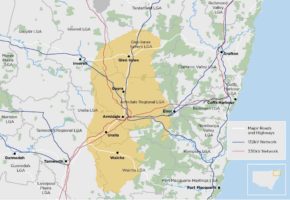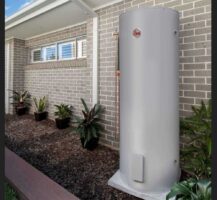The Australian Greens have tabled legislation that would prohibit the federal Coalition government from providing funds to new coal-fired power stations.
The legislation from the Greens is an attempt to pre-empt moves of the Coalition re-elected Morrison government and would prevent the government providing financial support, either in the form of direct grants, acquiring an ownership share or providing revenue guarantees to new or expanded coal-fired power stations.
The Coal-Fired Power Funding Prohibition Bill would directly prevent the Government from providing funds for upgrades to the Vales Point power station, as has been shortlisted under the Coalition’s Underwriting New Generation Investments (UNGI) scheme.
Receiving funds under the UNGI scheme would only sweeten the deal for Vales Point power station’s new owners, who purchased the power station from the NSW Government for just $1 million, with the NSW Government likely to carry the bulk of the burden for decommissioning the ageing power station when it closes.
The Government has labelled the UNGI scheme as a response to the ACCC recommendations for lowering electricity prices, despite the idea that new projects need underwriting support to get off the ground being dismissed by several prominent groups within the energy sector.
Energy minister Angus Taylor had set an ambitious timetable of having the project approved by the second quarter of this year, presumably on the basis that the timeline was not possible and the election would be lost. Now it has been won, Taylor has been quiet on it since. Questions by RenewEconomy over its progress have gone unanswered.
The growing number of recently completed renewable energy projects should be sufficient evidence of where viable investments can be found. (And they made up the lion’s share of the capacity nominated in the UNGI shortlist).
The Greens’ bill is largely similar to previous legislation tabled by the Greens. It has been re-introduced into the new parliament, because the previous version of the bill lapsed after the last parliament was dissolved when the federal election was called.
The bill would prevent a broad range of support being provided to coal generators, including providing electricity price guarantees to generators, providing loans, and indemnifying coal-fired generators from any potential carbon price introduced in the future.
The bill also provides an exemption allowing the Government to provide financial support when coal projects close, to fund the transition and deployment of workers into new industries.
Adam Bandt, the sole Greens member in the House of Representatives, said that the bill was needed to prevent the Government from supporting coal, citing the government’s track record
“The reason this bill is so important is because the government is led by a Prime Minister who hugged a piece of coal in this chamber and is looking to deploy the vast resources and power of government to protect and encourage fossil fuels, at significant risk to the taxpayer,” Bandt said during his second reading speech.”
“The government has made its intentions clear: that it is looking to use public money to underwrite investment in new generation and that this generation could include coal and gas and oil.”
“Upon commencement of this bill, the Commonwealth must not provide financial assistance for the building of, refurbishment of or purchase of coal-fired power stations. And this includes the provision of indirect assistance, such as through the underwriting or guarantee of someone else’s financial obligations.”
“Exemptions are provided to permit the Commonwealth to exercise its usual regulatory processes, to provide support to workers and communities affected by power station closures, to fund research related to coal-fired power stations generally or to manage the closure of coal-fired power stations.”
“It is distressing that in 2019 we have to introduce a bill to try and stop a trigger-happy government from using public funds against the best interests of the public. But this is truly a piece of legislation that is desperately needed and it says a lot about how dire the situation has become in this country.”
There have been no substantial moves in the climate and energy space since the election, with much of the focus of parliament being concentrated on the passage of the Coalition’s tax cuts package.
Before the election, federal energy minister Angus Taylor announced that the Government had shortlisted 12 projects for potential financial support under the ‘Underwriting New Generation Investments’ program, which included gas generators, pumped hydro energy storage projects and a coal upgrade at the Vales Point coal-fired power station.
However, no further details about the UNGI have been forthcoming and given the calls from within the industry suggesting that the UNGI isn’t needed in the first place, there are growing questions over whether the UNGI will even proceed.
Rumours often abound around alternative mechanisms that the government may use to challenge funds into new coal projects, such as the North Australian Infrastructure Facility, which recently awarded funding to the Genex solar-pumped hydro project, or by forcing changes to the investment mandate of the Clean Energy Finance Corporation.
Taylor will not be able to avoid addressing the question of the Coalition’s energy policy, with State and Territory energy ministers anxious for Taylor to convene meetings of the COAG energy council to progress cooperation on energy policy.
Half of the National Energy Guarantee, the Retailer Reliability Obligation, has recently come into force, after receiving sign off from the COAG Energy Council, with the mechanism unlikely to be enforced unless there is a significant shortfall event within the energy market.
Members of the COAG Energy Council have not met face-to-face since December last year. With meetings of the council mandated to occur at least twice a year, and little by way of a substantial forward agenda, ministers have expressed concern that no date for the next meeting has been set, who are keen to ensure the Federal government will not undermine their own policies.







